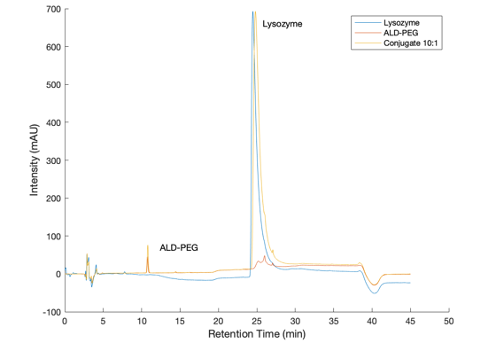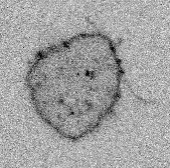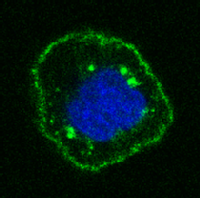Hannah Burnage
MAS PhD
I am currently a 1st year PhD student within the MAS CDT, working within the Perrier group in the Chemistry department. My research focusses on synthesising polymeric nanoparticles using RAFT polymerisation and investigating the protein corona formed on them in the presence of blood proteins.
The relevance of this is in drug delivery, using nanoparticles as a delivery vector to improve targeting of the drug and remove side effects.
MAS Mini-Projects
'Investigating the use of HPLC and GPC in monitoring PEGlyation reactions with proteins' July 2019 - September 2019
This project was supervised by Prof. David Haddleton, with the aim of studying a new BIOSEC detector to see if PEGylation of proteins could be monitored using GPC instead of HPLC.
Many active therapeutical agents (APIs) are protein-based, however they are rapidly removed from the body. A way to solve this is by PEGylation of the lysine end groups within the protein, which has been shown to improve protein-based drug retention. Some separation was seen, however the technique needs further optimising to surpass HPLC.

‘Studying cell-cell adhesion of embryonic progenitor cells under controlled conditions using lipid bilayers’ May 2019 – July 2019
My first mini project was under the supervision of Dr. Michael Smutny, working with embryonic cells from zebrafish to study the forces involved in embryonic development. To do this, a protein called E-cadherin was tagged with GFP and injected into embryos at the 1 cell stage. E-cadherin undergoes homotypic adhesion with other cell, allowing cells to hold together and also mechanically communicate.
This research focused on mesendoderm cells and used several microscopy techniques to study cell protrusions, E-cadherin microcluster formation, and cell spreading. The work revealed increased binding when the ectodomain of E-cadherin is present, with increased protrusions.


